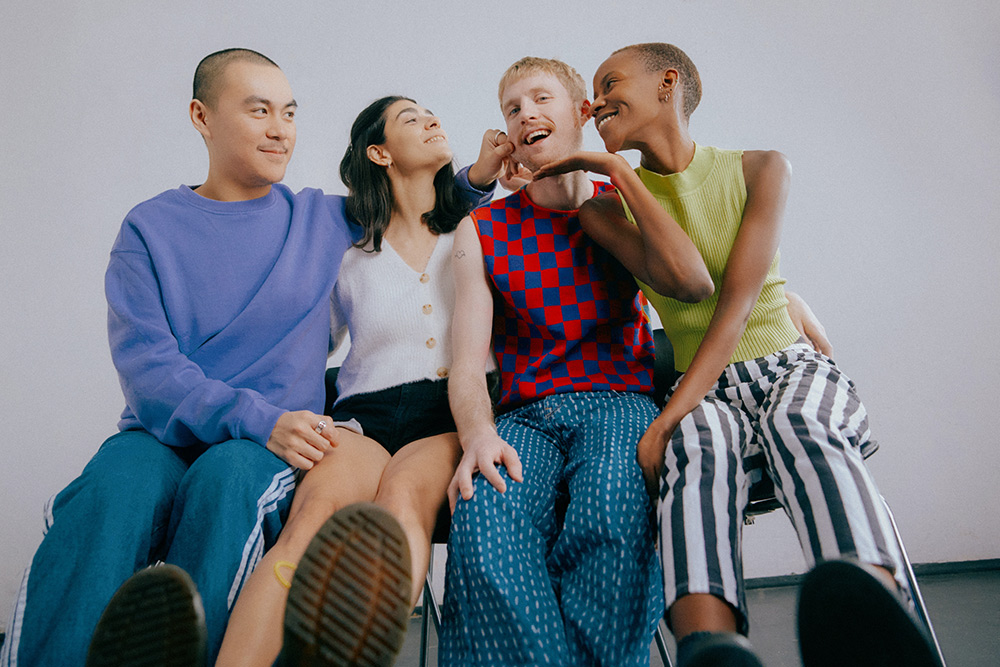There is no one way that all gay individuals experience their journey to self-acceptance and identification. However, researchers have identified six general stages that are often experienced by those who come out as gay. In this blog post, I will explore each of these stages and discuss what they might look like for someone who is in the process of coming out.
The Following Are the Stages of Coming Out as Identified by Researchers:
Stage 1: Identity Confusion
This is the stage of coming out where individuals first begin to question their sexuality. They may start to notice that they are attracted to people of the same gender, but they may not be sure what this means. They may feel confused, scared, and anxious about these new feelings, and they may try to suppress them.
Stage 2: Identity Comparison
In this stage, individuals compare themselves to others around them. They may try to figure out how they fit in with the LGBTQ+ community, and they may start to experiment with their sexuality. They may also start to come out to close friends or family members during this stage, but they may not yet be ready to identify as gay publicly.
Stage 3: Identity Tolerance
In this stage, individuals start to accept themselves for who they are. They may still be having some difficulty with their sexuality, but they have reached a point where they are ready to move forward. This is often when people come out to the rest of the world and start to live their lives as openly gay.
Stage 4: Identity Acceptance
This is the stage of coming out where individuals fully accept themselves as gay. They are comfortable with their sexuality, and they no longer feel the need to hide it from others. They may start to get involved in the LGBTQ+ community, and they may become an advocate for gay rights.
Stage 5: Identity Pride
In this stage, individuals take pride in their sexuality. They are confident and comfortable with who they are, and they no longer feel the need to justify their lifestyle to others. They may become active members of the LGBTQ+ community, and they may work to promote equality for all.
Stage 6: Identity Synthesis
In this stage, individuals reach a point where they are able to balance their gay identity with the other aspects of their life. They are comfortable with who they are, and they have found a place in the world. They may still be involved in the LGBTQ+ community, but they no longer feel the need to define themselves solely by their sexuality.
This is a general overview of the six stages of coming out. Every individual experiences these stages in their unique way, and there is no right or wrong way to go through them. If you are in the process of coming out, it’s important to remember that there is no timeline. You can take as much or as little time as you need to get through these stages.
And, most importantly, you’re not alone. There are millions of people who have gone through the same thing you’re going through, and there are plenty of resources available to help you through this process. Now that we’ve covered the six stages of coming out, let’s discuss what coming out might look like for someone who is in the process of coming out.
Coming Out: What to Expect
The coming out process can be exciting, but it can also be scary and overwhelming. Here are some things you can expect when you come out:
- You will likely experience a range of emotions. You may feel happy, relieved, scared, or anxious. It’s normal to feel all of these things, and you should allow yourself to experience whatever emotions come up.
- You may need to make some changes in your life. This could mean coming out to your family, friends, or co-workers. You may also change the way you talk about your relationships.
- You will probably make some new friends. As you start to explore your sexuality, you will likely meet new people who are going through the same thing. These people can be a great source of support and friendship.
- You may lose some friends. Unfortunately, not everyone will be accepting of your sexuality. You may lose some friends who can’t handle the fact that you are gay. This is okay, and you don’t need to apologize for who you are.
- You will have to deal with discrimination and homophobia. Unfortunately, gay people still face discrimination. You may experience this firsthand as you come out. It is important to remember that this discrimination is not your fault, and you should not let it stop you from being who you are.
Coming out can be a difficult process, but it can also be a very rewarding one. It’s important to go at your own pace and do what feels right for you. There is no wrong way to come out, and you should never feel like you have to hide who you are.
If you’re experiencing LGBTQ+ related concerns and would like some help, feel free to reach out to me for a free consultation.




